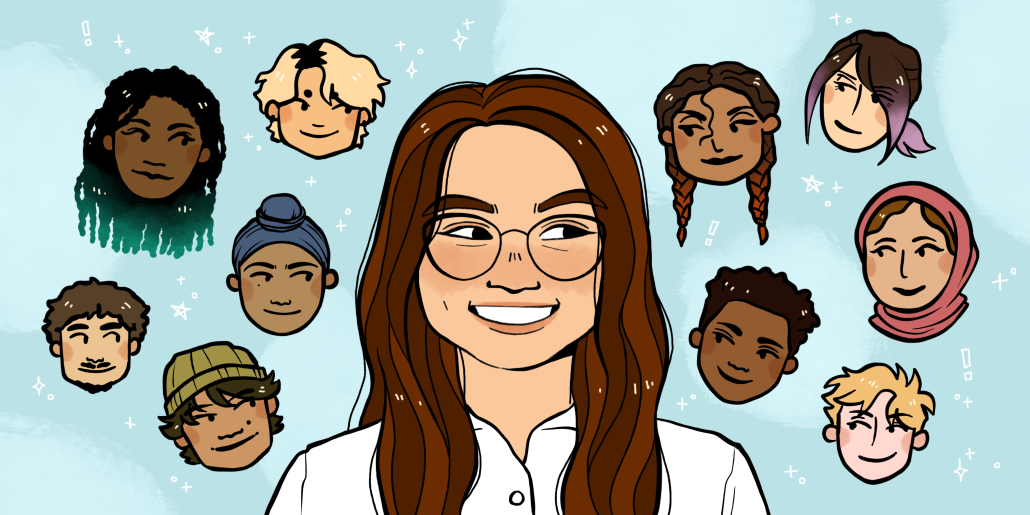There’s no such thing as too much representation

Once in a while, I’ll read a piece from the Daily Trojan, for instance, that I strongly relate to — almost to the point where I question if I’ve had the same experience. However, this rarely happens. Despite advocacy for more diversity, there will always be gaps. I am trying to fill those gaps by sharing my perspective as a first-generation, low-income, female Cambodian American student.
As someone at the intersection of multiple identities, it’s been difficult to receive adequate representation. My feelings have been heavily influenced by the lack of diversity in digital media growing up in the early 2000s. The minimal Asian, female representation I had as a child — Ni Hao Kai-Lan and Mulan — was insufficient in making me feel seen. The surface-level representation of my identity continued into my pre-teens, where Asian characters remained predominantly from the east side of the continent and came from middle-class backgrounds.
No character was Khmer — from Cambodia — who enjoyed delicious temple food every weekend. No character was depicted as an immigrant daughter struggling to assimilate to American culture while attempting to preserve their family’s heritage. No character was pictured shopping at Ross in order to make ends meet as an economically-struggling household. No character accurately portrayed my story on screen.
Attending a predominantly white institution like USC as someone with many intersecting identities, I fear I might never be content with my place at the University. It can sometimes feel demoralizing when you realize how your background, something you have no control over, becomes a disadvantage in your success, closing and opening certain pathways in life.
I didn’t realize the true importance of my identity until I stepped on campus. These identities were once just boxes I checked on documents, but now they actively contribute to changing the status quo. Nor did I consider myself as a writer and join in the University paper’s opinion section because my whole life I never really had opinions. Growing up in my very traditional ethnic household, I was conditioned to believe the action of speaking up is frowned upon and that it was more beneficial for me to remain as neutral as possible.
Ironically, despite my preaching of activism, I admit to deliberately postponing writing this piece, my first article ever as a new opinion staff writer — as the pressure public perception weighed on me. My relationship with words has always been complex. I often found my words twisting and turning, scrambling out of my mouth in order to form complete, coherent sentences. From learning two languages at once as a child, to the greatest extent my immigrant mother could teach me, communication became my biggest insecurity and weakness. The prevalent hesitancy to share my voice comes down to these simple questions: Do people really care about what I think? What does my voice have to offer?
I realized the unhealthy obsession I have with trying to prove my worthiness on campus, proving to others of my capabilities to “succeed” despite my background. That I was not a pity acceptance. A study in 2020 by Washington State University revealed that first-generation students are more susceptible to imposter syndrome when they feel they are in a competitive environment. And USC has not exactly been the easiest habitat for my identities to thrive in. But what I learned is the majority of this pressure is personally perpetuated. In the same study, in classes students didn’t perceive to be competitive, there was little difference in the levels of imposter syndrome between first-generation students and their classmates. Our capabilities are solely tied to how we view ourselves and first-generation studens become their own deterrent from pursuing opportunities.
It’s easy to succumb to the thought that no one will understand, but I’ve discovered my greatest refuge is the voices of other students, realizing I am not alone. By being vulnerable and completely authentic about my experiences, I’ve formed unique emotional connections with people who were once complete strangers. It’s healing. Navigating my multitude of identities and the struggles that coincided ignited my inherent interest in advocating for more inclusivity in the media through art. I want to become the storyteller my younger self lacked, in the hope to diminish the feelings of isolation.
I encourage everyone to either write and share their stories or read others to feel more connected to campus. Everyone’s voice has value. It has the power to enrich individual people to abolish larger systemic institutions. There are never enough stories about feeling lost, feeling afraid, or feeling angry. Because despite the possibility of never knowing who the author behind each piece is — seeing, meeting, or talking to them — the connecting point between our lives through their art is magic. Magic I want everyone to be a part of.

